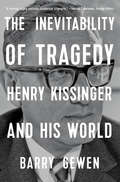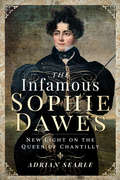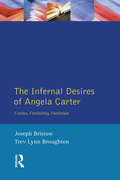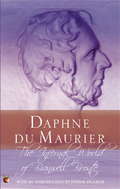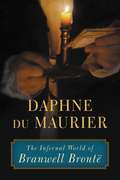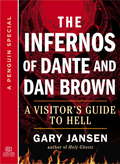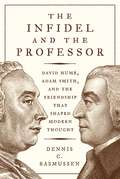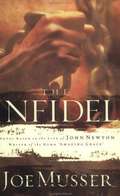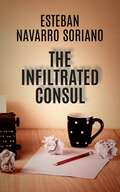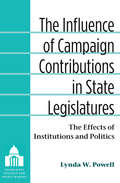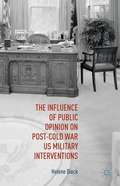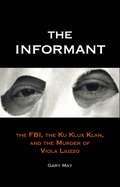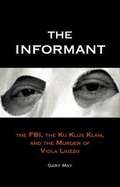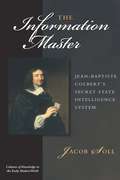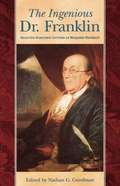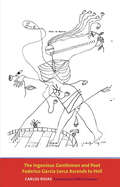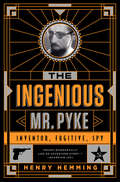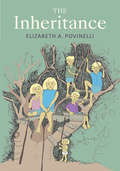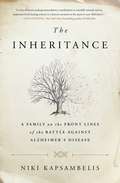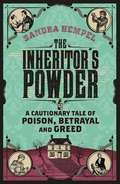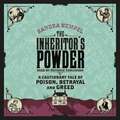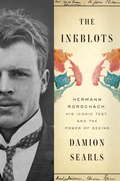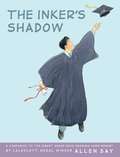- Table View
- List View
The Inevitability of Tragedy: Henry Kissinger And His World
by Barry GewenA new portrait of Henry Kissinger focusing on the fundamental ideas underlying his policies: Realism, balance of power, and national interest. Few public officials have provoked such intense controversy as Henry Kissinger. During his time in the Nixon and Ford administrations, he came to be admired and hated in equal measure. Notoriously, he believed that foreign affairs ought to be based primarily on the power relationships of a situation, not simply on ethics. He went so far as to argue that under certain circumstances America had to protect its national interests even if that meant repressing other countries’ attempts at democracy. For this reason, many today on both the right and left dismiss him as a latter-day Machiavelli, ignoring the breadth and complexity of his thought. With The Inevitability of Tragedy, Barry Gewen corrects this shallow view, presenting the fascinating story of Kissinger’s development as both a strategist and an intellectual and examining his unique role in government through his ideas. This book analyzes his contentious policies in Vietnam and Chile, guided by a fresh understanding of his definition of Realism, the belief that world politics is based on an inevitable, tragic competition for power. Crucially, Gewen places Kissinger’s pessimistic thought in a European context. He considers how Kissinger was deeply impacted by his experience as a refugee from Nazi Germany, and explores the links between his notions of power and those of his mentor, Hans Morgenthau—the father of Realism—as well as those of two other German-Jewish émigrés who shared his concerns about the weaknesses of democracy: Leo Strauss and Hannah Arendt. The Inevitability of Tragedy offers a thoughtful perspective on the origins of Kissinger’s sober worldview and argues that a reconsideration of his career is essential at a time when American foreign policy lacks direction.
The Infamous Sophie Dawes: New Light on the Queen of Chantilly
by Adrian SearleA biography of the British woman who left behind life in a brothel to become a baroness in a French chateau, and perhaps a killer.She was the daughter of an alcoholic Isle of Wight smuggler. Much of her childhood was spent in the island’s workhouse. Yet Sophie Dawes threw off the shackles of her downbeat formative years to become one of the most talked-about personalities in post-revolutionary France.It was the ultimate rags to riches story that would see her become the mistress of the fabulously wealthy French aristocrat Louis Henri de Bourbon, destined to be the last Prince of Condé. Her total subjugation of the aging prince, her obsessive desire for a position among the highest echelon of French royalist society following the Bourbon restoration, and her designs upon a hefty chunk of Louis Henri’s vast fortune would lead to scandal, sensation, and then infamy.The Infamous Sophie Dawes examines her island background before tracing her extraordinary rise from obscurity to becoming a baroness who ruled the prince’s château at Chantilly as its unofficial queen and intrigued with the King of the French to get what she wanted.But how far did she go? The book examines the mysterious death of Louis Henri in 1830 and uses newly discovered evidence in a bid to determine the part Sophie may have played in his demise.“Mouthwatering scandal, dangerous affairs, this story has the lot!” —Books Monthly
The Infamous Sophie Dawes: New Light on the Queen of Chantilly
by Adrian SearleA biography of the British woman who left behind life in a brothel to become a baroness in a French chateau, and perhaps a killer.She was the daughter of an alcoholic Isle of Wight smuggler. Much of her childhood was spent in the island’s workhouse. Yet Sophie Dawes threw off the shackles of her downbeat formative years to become one of the most talked-about personalities in post-revolutionary France.It was the ultimate rags to riches story that would see her become the mistress of the fabulously wealthy French aristocrat Louis Henri de Bourbon, destined to be the last Prince of Condé. Her total subjugation of the aging prince, her obsessive desire for a position among the highest echelon of French royalist society following the Bourbon restoration, and her designs upon a hefty chunk of Louis Henri’s vast fortune would lead to scandal, sensation, and then infamy.The Infamous Sophie Dawes examines her island background before tracing her extraordinary rise from obscurity to becoming a baroness who ruled the prince’s château at Chantilly as its unofficial queen and intrigued with the King of the French to get what she wanted.But how far did she go? The book examines the mysterious death of Louis Henri in 1830 and uses newly discovered evidence in a bid to determine the part Sophie may have played in his demise.“Mouthwatering scandal, dangerous affairs, this story has the lot!” —Books Monthly
The Infernal Desires of Angela Carter: Fiction, Femininity, Feminism (Longman Studies In Twentieth Century Literature)
by Joseph Bristow Trev Lynn BroughtonDrawing on many aspects of contemporary feminist theory, this lively collection of essays assesses Angela Carter's polemical fictions of desire. Carter, renowned for her irreverent wit, was one of the most gifted, subversive, and stylish British writers to emerge in the 1960s.
The Infernal World Of Branwell Bronte (Virago Modern Classics #126)
by Daphne Du MaurierFROM THE BESTSELLING AUTHOR OF REBECCAAs a bold and gifted child, Branwell Bronte's promise seemed boundless to the three adoring sisters over whom his rule was complete. But as an adult, the precocious flame of genius distorted and burned low.With neither the strength nor the resources to counter rejection, unable to sell his paintings or publish his books, Branwell became a spectre in the Bronte story, in pathetic contrast with the astonishing achievements of his sisters.Daphne du Maurier concentrates all her biographer's skill on the shadowy figure of Branwell Bronte, and no reader could fail to be intensely moved by Branwell's final retreat into laudanum, alcohol - and death
The Infernal World Of Branwell Bronte (Vmc Ser. #664)
by Daphne Du MaurierFROM THE BESTSELLING AUTHOR OF REBECCAAs a bold and gifted child, Branwell Bronte's promise seemed boundless to the three adoring sisters over whom his rule was complete. But as an adult, the precocious flame of genius distorted and burned low.With neither the strength nor the resources to counter rejection, unable to sell his paintings or publish his books, Branwell became a spectre in the Bronte story, in pathetic contrast with the astonishing achievements of his sisters.Daphne du Maurier concentrates all her biographer's skill on the shadowy figure of Branwell Bronte, and no reader could fail to be intensely moved by Branwell's final retreat into laudanum, alcohol - and death
The Infernal World of Branwell Brontë
by Daphne Du Maurier"Miss du Maurier has brought to the art of the biography the narrative urgency which gives such animation to her storytelling." -New York Times Book ReviewPursued by the twin demons of drink and madness, Branwell Bronte created a private world that was indeed infernal. As a bold and gifted child, his promise seemed boundless to the three adoring sisters over whom his rule was complete. But as an adult, the precocious flame of genius distorted and burned low. With neither the strength nor the resources to counter rejection, unable to sell his paintings or publish his books, Branwell became a spectre in the Bronte story, in pathetic contrast with the astonishing achievements of Charlotte, Emily and Anne. This is the biography of the shadowy figure of the "unknown" Bronte.
The Infernos of Dante and Dan Brown
by Gary JansenAn extraordinary journey into the signs and symbols behind Dan Brown's new Robert Langdon thriller, Inferno. Just in time for Dan Brown's new novel, this short guide introduces readers to Dante Alighieri's fourteenth-century epic poem Inferno and explores how Brown uses Dante's imagery and symbols in his latest Robert Langdon thriller. The Infernos of Dante and Dan Brown: A Visitor's Guide to Hell answers the questions and illuminates the facts behind Brown's historical puzzles, cryptic clues, and plot twists. It allows every reader to immerse himself more deeply into Robert Langdon's world. Author Gary Jansen is an independent scholar of Dante's work and a critically acclaimed writer on modern religion. In addition to providing an inside perspective on how Dan Brown uses the uncanny and remarkable themes of Dante, Jansen presents a reliable and engaging overview of the Middle Ages poet and his work. The Infernos of Dante and Dan Brown is an all-around resource into the religious themes, historical secrets, and beguiling imagery behind this breathtaking new thriller.
The Infidel and the Professor: David Hume, Adam Smith, and the Friendship That Shaped Modern Thought
by Dennis C. RasmussenThe story of the greatest of all philosophical friendships—and how it influenced modern thoughtDavid Hume is widely regarded as the most important philosopher ever to write in English, but during his lifetime he was attacked as “the Great Infidel” for his skeptical religious views and deemed unfit to teach the young. In contrast, Adam Smith was a revered professor of moral philosophy, and is now often hailed as the founding father of capitalism. Remarkably, the two were best friends for most of their adult lives, sharing what Dennis Rasmussen calls the greatest of all philosophical friendships. The Infidel and the Professor is the first book to tell the fascinating story of the friendship of these towering Enlightenment thinkers—and how it influenced their world-changing ideas.The book follows Hume and Smith’s relationship from their first meeting in 1749 until Hume’s death in 1776. It describes how they commented on each other’s writings, supported each other’s careers and literary ambitions, and advised each other on personal matters, most notably after Hume’s quarrel with Jean-Jacques Rousseau. Members of a vibrant intellectual scene in Enlightenment Scotland, Hume and Smith made many of the same friends (and enemies), joined the same clubs, and were interested in many of the same subjects well beyond philosophy and economics—from psychology and history to politics and Britain’s conflict with the American colonies. The book reveals that Smith’s private religious views were considerably closer to Hume’s public ones than is usually believed. It also shows that Hume contributed more to economics—and Smith contributed more to philosophy—than is generally recognized.Vividly written, The Infidel and the Professor is a compelling account of a great friendship that had great consequences for modern thought.
The Infidel: A Novel
by Joe MusserFictionalized biography of John Newton, the writer of the hymn "Amazing Grace"
The Infiltrated Consul
by Esteban Navarro SorianoThe incredibe story of Roger Tur Pallier, the honorary consul of France in Zaragoza from the pre-war period to the nineteen-seventies. Based on true events the story recounts his involvement spying on the Nazis in Spain before, during and after the Second World War and ending with his unfortunate death at the hands of left-wing terrorists shortly before he was due to retire.
The Influence of Campaign Contributions in State Legislatures: The Effects of Institutions and Politics
by Lynda W. PowellCampaign contributions are widely viewed as a corrupting influence but most scholarly research concludes that they have marginal impact on legislative behavior. Lynda W. Powell shows that contributions have considerable influence in some state legislatures but very little in others. Using a national survey of legislators, she develops an innovative measure of influence and delineates the factors that explain this great variation across the 99 U. S. state legislative chambers. Powell identifies the personal, institutional, and political factors that determine how much time a legislator devotes to personal fundraising and fundraising for the caucus. She shows that the extent of donors' legislative influence varies in ways corresponding to the same variations in the factors that determine fundraising time. She also confirms a link between fundraising and lobbying with evidence supporting the theory that contributors gain access to legislators based on donations, Powell's findings have important implications for the debate over the role of money in the legislative process.
The Influence of Public Opinion on Post–Cold War US Military Interventions
by Helene DieckIs the American president free to wage a war? What is his leeway with respect to public opinion? The book explores these and other essential questions in understanding post—Cold War and post-9/11 conflicts: interventions characterized by their long duration in distant countries with unclear strategic interests. If public opinion often initially tolerates the President embarking on a military intervention, that support is difficult to maintain in the long term when the troops are on the battlefield and victory appears improbable. In order to maintain public support as long as possible for foreign interventions, the United States often adapts military strategy and tactics to the detriment of the desired objectives. As a result, and contrary to the predominant literature, this qualitative study argues that public opinion has major impact on military interventions.
The Informant: The FBI, the Klu Klux Klan, and the Murder of Viola Luzzo
by Gary MayAn FBI&’s informant&’s role in the murder of a civil rights activist by the KKK is explored in this &“suspenseful and vigorously reported&” history (Baltimore Sun). In 1965, Detroit housewife Viola Liuzzo drove to Alabama to help organize Martin Luther King&’s Voting Rights March from Selma, Alabama, to Montgomery. But after the march&’s historic success, Liuzzo was shot to death by members of the Birmingham Ku Klux Klan. The case drew national attention and was solved almost instantly, because one of the Klansman present during the shooting was Gary Thomas Rowe, an undercover FBI informant. At the time, Rowe&’s information and testimony were heralded as a triumph of law enforcement. But as Gary May reveals in this provocative book, Rowe&’s history of collaboration with both the Klan and the FBI was far more complex. Based on previously unexamined FBI and Justice Department Records, The Informant demonstrates that in their ongoing efforts to protect Rowe&’s cover, the FBI knowingly became an accessory to some of the most grotesque crimes of the Civil Rights era—including a vicious attack on the Freedom Riders and perhaps even the bombing of the Sixteenth Street Baptist Church. A tale of a renegade informant and a tragically dysfunctional intelligence system, The Informant offers a dramatic cautionary tale about what can happen when secret police power goes unchecked.
The Informant: The FBI, the Ku Klux Klan, and the Murder of Viola Liuzzo
by Gary MayHistorian Gary May reveals the untold story of the murder of civil rights worker Viola Liuzzo, shot to death by members of the violent Birmingham Ku Klux Klan at the end of Martin Luther King's historic Voting Rights March in 1965. The case drew national attention and was solved almost instantly, because one of the Klansman present during the shooting was Gary Thomas Rowe, an undercover FBI informant. At the time, Rowe's information and subsequent testimony were heralded as a triumph of law enforcement. But as Gary May reveals in this provocative and powerful book, Rowe's history of collaboration with both the Klan and the FBI was far more complex. Based on previously unexamined FBI and Justice Department Records,The Informant demonstrates that in their ongoing efforts to protect Rowe's cover, the FBI knowingly became an accessory to some of the most grotesque crimes of the Civil Rights era--including a vicious attack on the Freedom Riders and perhaps even the bombing of the Sixteenth Street Baptist Church. A tale of a renegade informant and an intelligence system ill-prepared to deal with threats from within,The Informant offers a dramatic and cautionary tale about what can happen when secret police power goes unchecked.
The Information Master: Jean-Baptiste Colbert's Secret State Intelligence System
by Jacob SollJean-Baptiste Colbert saw governance of the state not as the inherent ability of the king, but as a form of mechanical mastery of subjects such as medieval legal history, physics, navigation, and the price lists of nails, sails, and gunpowder. In The Information Master, Jacob Soll shows how the legacy of Colbert's encyclopedic tradition lies at the very center of the rise of the modern state. This innovative book argues that Colbert's practice of collecting knowledge originated in Renaissance Italy, where merchants recognized the power to be gained from merging scholarship and trade. By connecting historical literatures--archives, libraries, merchant techniques, and humanist pedagogy--that have usually remained separate, Soll has created an imaginative and refreshing work.
The Ingenious Dr. Franklin
by Nathan G. GoodmanThe Ingenious Dr. Franklin, an outstanding collection of Benjamin Franklin's scientific correspondence, has long been unavailable yet deserves a place beside his Autobiography as essential reading for everyone interested in history, wit, and invention. Portioned into three sections, "Practical Schemes and Suggestions," "Diverse Experiments and Observations," and "Scientific Deductions and Conjectures," these letters discuss an extraordinary range of topics, including the art of procuring pleasant dreams, choosing eye glasses, the first human flight, the character of clouds, the behavior of oil and water, smallpox and cancer, the cause of colds, charting the Gulf Stream, and prehistoric animals of the Ohio. Culled from ponderous volumes of collected works or private collections, these engaging and unabridged letters were assembled to allow readers to discover for themselves Benjamin Franklin's vigorous personality, his humanity, and his penetrating intelligence.
The Ingenious Gentleman and Poet Federico Garcia Lorca Ascends to Hell
by Edith Grossman Carlos RojasIn Carlos Rojasâ TMs imaginative novel, the Spanish poet Federico GarcÃa Lorca, murdered by Francoist rebels in August 1936, finds himself in an inferno that somehow resembles Breughelâ TMs Tower of Babel. He sits alone in a small theater in this private hell, viewing scenes from his own life performed over and over and over. Unexpectedly, two doppelgängers appear, one a middle-aged Lorca, the other an irascible octogenarian self, and the poet faces a nightmarish confusion of alternative identities and destinies.Carlos Rojas uses a fantastic premiseâ "GarcÃa Lorca in hellâ "to reexamine the poetâ TMs life and speculate on alternatives to his tragic end. Rojas creates with a surrealistâ TMs eye and a moral philosopherâ TMs mind. He conjures a profoundly original world, and in so doing earns a place among such international peers as Gabriel GarcÃa Márquez, Philip Roth, J. M. Coetzee, and José Saramago.
The Ingenious Mr. Pyke: Inventor, Fugitive, Spy
by Henry HemmingThis is the extraordinary story of Geoffrey Pyke, an inventor, war reporter, escaped prisoner, campaigner, father, educator--and all-around misunderstood genius. In his day, he was described as one of the world's great minds, to rank alongside Einstein, yet he remains virtually unknown today. Pyke was an unlikely hero of both world wars and, among many other things, is seen today as the father of the U. S. Special Forces. He changed the landscape of British pre-school education, earned a fortune on the stock market, wrote a bestseller and in 1942 convinced Winston Churchill to build an aircraft carrier out of reinforced ice. He escaped from a German WWI prison camp, devised an ingenious plan to help the Republicans in the Spanish Civil War, and launched a private attempt to avert the outbreak of the Second World War by sending into Nazi Germany a group of pollsters disguised as golfers. Despite his brilliance, Pyke ultimately could not find peace, committing suicide in 1948. Yet the full scope of his story remained secret even after his death: in 2009, MI5 released a mass of material suggesting that Pyke was in fact a senior official in the Soviet Comintern. In 1951 papers relating to Pyke were found in the flat of "Cambridge Spy' Guy Burgess after his defection to Moscow. MI5 had "watchers" follow Pyke through the bombed-out streets of London, his letters were opened and listening devices picked up clues to his real identity. Convinced he was a Soviet agent codenamed Professor P, MI5 helped to bring his career to an end. It is only now, more than sixty years after his death, that Geoffrey Pyke's astonishing story can be told in full. The Ingenious Mr. Pyke is a many-faceted account of this enigmatic man’s genius, and reveals him as one of the great innovators of the last century.
The Inheritance
by Elizabeth A. PovinelliElizabeth A. Povinelli’s inheritance was passed down not through blood or soil but through a framed map of Trentino, Alto Adige—the region where family's ancestral alpine village is found. Far more than a map hanging above the family television, the image featured colors and lines that held in place the memories and values fueling the Povinelli family's fraught relationships with the village and with each other. In her graphic memoir The Inheritance, Povinelli explores the events, traumas, and powers that divide and define our individual and collective pasts and futures. Weaving together stories of her grandparents' flight from their village in the early twentieth century to the fortunes of their knife-grinding business in Buffalo, New York, and her own Catholic childhood in a shrinking Louisiana woodlands of the 1960s and 1970s, Povinelli describes the serial patterns of violence, dislocation, racism and structural inequality that have shaped not only her life but the American story. Plumbing the messy relationships among nationality, ethnicity, kinship, religion, and belonging, The Inheritance takes us into the gulf between the facts of history and the stories we tell ourselves to survive and justify them.
The Inheritance: A Family on the Front Lines of the Battle Against Alzheimer's Disease
by Niki KapsambelisAn inspiring race against time: The courageous, hopeful story of the one family who may hold the key to finding a cure for Alzheimer’s disease.Every sixty-nine seconds, someone is diagnosed with Alzheimer’s disease. Of the top ten killers, it is the only disease for which there is no cure or treatment. For most people, there is nothing that they can do to fight back. But one family is doing all they can. The DeMoe family has the most devastating form of the disease that there is: early onset Alzheimer’s, an inherited genetic mutation that causes the disease in 100 percent of cases, and has a 50 percent chance of being passed onto the next generation. Of the six DeMoe children whose father had it, five have inherited the gene; the sixth, Karla, has inherited responsibility for all of them. But rather than give up in the face of such news, the DeMoes have agreed to spend their precious, abbreviated years as part of a worldwide study that could utterly change the landscape of Alzheimer’s research and offers the brightest hope for future treatments—and possibly a cure. Drawing from several years of in-depth research with this charming and upbeat family, journalist Niki Kapsambelis tells the story of Alzheimer’s through the humanizing lens of these ordinary people made extraordinary by both their terrible circumstances and their bravery. Their tale is intertwined with the dramatic narrative history of the disease, the cutting-edge research that brings us ever closer to a possible cure, and the accounts of the extraordinary doctors spearheading these groundbreaking studies. From the oil fields of North Dakota to the jungles of Colombia, this incredible narrative redefines courage in the face of one of the most pervasive and mysterious pandemics of our time.
The Inheritor's Powder: A Cautionary Tale of Poison, Betrayal and Greed
by Sandra HempelIn the nineteenth century it was criminally easy to bump off unwanted relatives. A Household Thrown into Chaos Plumstead village, 2 November 1833. Wealthy landlord, George Bodle is taken violently ill. He dies within hours. When his wife, daughter and two maids are also taken ill, there is only one terrifying explanation . . . arsenic poisoning. A Murder Most FoulYet, while arsenic was readily available over the counter in the 1800s, poisoning was almost impossible to prove. As the evidence mounted up, a picture emerged of bitter family rivalries, brewing resentment, greed and ill-will. A Sensational TaleIn this account of one of history's most notorious poisonings, Sandra Hempel tells the story of the birth of toxicology - the science of poison - and of a mystery which gripped the nation.
The Inheritor's Powder: A Cautionary Tale of Poison, Betrayal and Greed
by Sandra HempelAll was quiet in the Bodle home in Plumstead village on the morning of 2 November 1833. In the large ten bedroom farmhouse, the maid Sophia Taylor began preparing breakfast while, at the cottage down the track, Mary Higgins came down to set the fire.But all was not as it seemed that morning...When the local doctor was summoned several hours later he found four women suffering from severe vomiting and stomach pains whilst the master of the house was delirious with pain. His suspicions raised, the doctor contacted Michael Faraday at his laboratory in Woolwich.So began a chain of events that would grip the entire nation. For in the 19th century, criminal poisoning was terrifyingly easy, yet almost impossible to prove - a situation that resulted in no end of mischief. 'The fell spirit of the Borgias' was said to be sweeping across the land and as the panic reached fever pitch, so the race to find the definitive test began...Read by Patience Tomlinson. Patience trained at the Guildhall School of Music and Drama, and has since appeared in many roles in theatres across the country. She has made countless BBC radio broadcasts of plays, poetry and short stories, as well as regular audio books and television work such as The Day Today, Friday Night Armistice and In The Red.(p) 2013 Isis Publishing Ltd
The Inkblots: Hermann Rorschach, His Iconic Test, and the Power of Seeing
by Damion SearlsThe captivating, untold story of Hermann Rorschach and his famous inkblot test In 1917, working alone in a remote Swiss asylum, psychiatrist Hermann Rorschach devised an experiment to probe the human mind: a set of ten carefully designed inkblots. For years he had grappled with the theories of Freud and Jung while also absorbing the aesthetic movements of the day, from Futurism to Dadaism. A visual artist himself, Rorschach had come to believe that who we are is less a matter of what we say, as Freud thought, than what we see.After Rorschach’s early death, his test quickly made its way to America, where it took on a life of its own. Co-opted by the military after Pearl Harbor, it was a fixture at the Nuremberg trials and in the jungles of Vietnam. It became an advertising staple, a cliché in Hollywood and journalism, and an inspiration to everyone from Andy Warhol to Jay Z. The test was also given to millions of defendants, job applicants, parents in custody battles, and people suffering from mental illness or simply trying to understand themselves better. And it is still used today.In this first-ever biography of Rorschach, Damion Searls draws on unpublished letters and diaries and a cache of previously unknown interviews with Rorschach’s family, friends, and colleagues to tell the unlikely story of the test’s creation, its controversial reinvention, and its remarkable endurance—and what it all reveals about the power of perception. Elegant and original, The Inkblots shines a light on the twentieth century’s most visionary synthesis of art and science.
The Inker's Shadow (Scholastic Press Novels)
by Allen SayFor Allen Say, life as teen in Southern California was a cold existence. His father, one of the leading hamburger salesmen in Japan, ran a booming burger business, much like McDonald's
